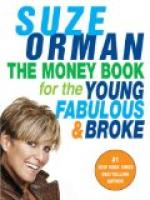THE BOY OF EGREMONT.
The founders of Embsay were now dead, and left a daughter, who adopted the mother’s name of Romille, and was married to William FitzDuncan. They had issue a son, commonly called the Boy of Egremont, who surviving an elder brother, became the last hope of the family.
In the deep solitude of the woods, betwixt Bolton and Barden the river suddenly contracts itself into a rocky channel, little more than four feet wide, and pours through the tremendous fissure, with a rapidity equal to its confinement. This place was then, as it now is, called the Strid, from a feat often exercised by persons of more agility than prudence, who stride from brink to brink, regardless of the destruction which awaits a faltering step. Such, according to tradition, was the fate of young Romille, who, inconsiderately, bounding over the chasm with a greyhound in his leash, the animal hung back, and drew his unfortunate master into the torrent. The Forester, who accompanied Romille and beheld his fate, returned to the Lady Aaliza, and with despair in his countenance, enquired, “what is good for bootless Bene,” to which the mother, apprehending some great misfortune, had befallen her son, instantly replied, “endless sorrow.”
The language of this question is almost unintelligible at present. But bootless bene, is unavailing prayer; and the meaning, though imperfectly expressed, seems to have been, what remains when prayer avails not?
—Vide. Whitaker’s History of Craven
Lady! what is the fate of those
Whose hopes and joys are failing?
Who, brooding over ceaseless woes,
Finds prayer is unavailing?
The mother heard his maddening tone,
She marked his look of horror;
She thought upon her absent son,
And answered, “endless sorrow.”
How fair that morning star arose!
And bright and cloudless was its ray;
Ah! who could think that evening’s
close,
Would mark a frantic mother’s woes,
And see a father’s hopes decay?
Inhuman Chief! a judgment stern
Hath stopped thee in thy mad career;
And thou, who hast made thousands mourn.
Must shed, thyself, the hopeless tear,
And long, in helpless grief, deplore
Thy only child is now no more.
Long ere the lark his matin sung,
Clad in his hunting garb of green,
The brave, the noble, and the young,
The Boy of Egremont was seen!
Who in his fair form could not trace,
The youth was born of high degree;
He was the last of Duncan’s race,
The only hope of Romille.
In his bright eye the youthful fire
Was glowing with unwonted brightness;
Warm in friendship, fierce in ire,
Yet spoke of all its bosom’s lightness.
His mother marked his brilliant cheek,
And blessed him as he onward past;
Ah! did no boding feeling speak,
To tell that look would be her last.
He held the hound in silken band,
The merlin perched upon his hand,
And frolic, mirth and wayward glee
Glanced in the heart of Romille.




